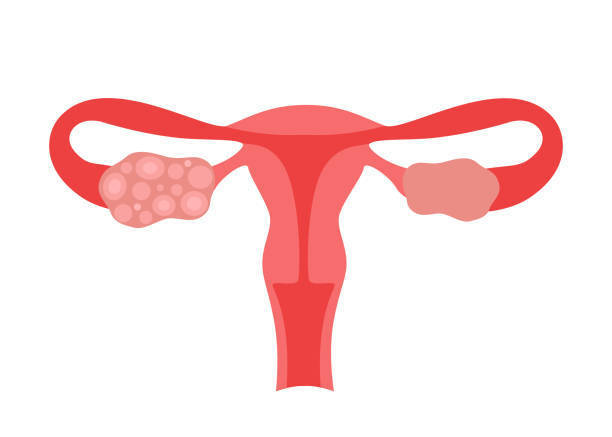
Welcome to Tulsi Wellness Club in San Diego, where our doctors are dedicated to helping you navigate your health journey with comprehensive insights and holistic care. One common concern we encounter is the link between Polycystic Ovary Syndrome (PCOS) and stomach bloating. If you’ve been experiencing persistent abdominal bloating and have PCOS, you might be wondering about the connection. Let’s delve into how PCOS can affect your digestive system and explore effective strategies to manage these symptoms.
What is PCOS?
Polycystic Ovary Syndrome (PCOS) is a common endocrine disorder that affects women of reproductive age. It’s characterized by hormonal imbalances, which can lead to irregular menstrual cycles, excess androgen levels (often resulting in acne or excess hair growth), and ovarian cysts. While the symptoms of PCOS are primarily hormonal, they can also impact various aspects of your overall health, including digestion and gastrointestinal function.
Understanding Stomach Bloating
Stomach bloating is a common complaint involving a feeling of fullness or swelling in the abdominal area. It can be caused by various factors, including digestive disturbances, hormonal changes, and lifestyle habits. Bloating can be uncomfortable and may accompany other symptoms like gas, cramping, and a visibly distended abdomen.
Connection Between PCOS and Stomach Bloating
While stomach bloating is not a direct symptom of PCOS, there are several ways in which PCOS can contribute to or exacerbate bloating:
-
Hormonal Imbalances: The hormonal fluctuations associated with PCOS can affect the digestive system. Elevated levels of androgens and insulin resistance may disrupt normal digestion and lead to bloating and gas.
-
Insulin Resistance: Many women with PCOS experience insulin resistance, where the body’s cells do not respond effectively to insulin. This can lead to increased levels of insulin in the blood, which may contribute to bloating and gastrointestinal discomfort.
-
Digestive Changes: Hormonal imbalances can impact gut motility, leading to issues such as constipation or irregular bowel movements, both of which can contribute to bloating.
-
Weight Fluctuations: PCOS can sometimes be associated with weight gain or difficulty maintaining a healthy weight. Excess weight, particularly around the abdominal area, can contribute to feelings of bloating and fullness.
-
Dietary Factors: Women with PCOS may have specific dietary needs or challenges. For instance, a diet high in refined carbohydrates and sugars, which is often recommended for managing PCOS, can sometimes lead to bloating.
Managing Bloating with PCOS
At Tulsi Wellness Club, we advocate for a holistic approach to managing PCOS and its associated symptoms. Here are some strategies to help alleviate stomach bloating:
-
Balanced Diet: Focus on a balanced diet rich in whole foods, including vegetables, fruits, lean proteins, and healthy fats. Reducing your intake of refined sugars and processed foods can help manage insulin levels and improve digestive health.
-
Regular Exercise: Incorporating regular physical activity can help regulate hormones, improve insulin sensitivity, and support overall digestive function. Aim for a mix of cardiovascular exercise and strength training.
-
Hydration: Drinking plenty of water helps with digestion and can reduce bloating. Aim for at least 8 cups of water a day, and consider herbal teas like peppermint or ginger, which can have soothing effects on the digestive system.
-
Stress Management: Stress can exacerbate hormonal imbalances and digestive issues. Engage in stress-reducing practices such as meditation, yoga, or deep-breathing exercises to help manage stress levels and improve overall well-being.
-
Probiotics: Consider incorporating probiotic-rich foods or supplements into your diet. Probiotics can help support a healthy gut microbiome, which may improve digestion and reduce bloating.
-
Monitor Food Sensitivities: Keep track of any foods that seem to trigger bloating or digestive discomfort. An elimination diet or food diary can help identify potential culprits and guide dietary adjustments.
When to Seek Professional Help
If you’re struggling with persistent bloating and suspect it might be related to PCOS, it’s important to consult with a healthcare professional. They can help diagnose any underlying issues and recommend appropriate treatments or lifestyle changes.
At Tulsi Wellness Club, we offer personalized consultations to help you manage PCOS symptoms and improve your overall health. Whether you're looking for dietary advice, stress management techniques, or support with hormonal balance, our team is here to assist you on your wellness journey.
Conclusion
PCOS can impact various aspects of your health, including digestion and bloating. By understanding the connection and implementing holistic strategies, you can better manage your symptoms and enhance your well-being. For personalized guidance and support, contact Tulsi Wellness Club in San Diego. We’re committed to helping you achieve a balanced and healthier life.
Dr. Natasha MacLeay
Contact Me



